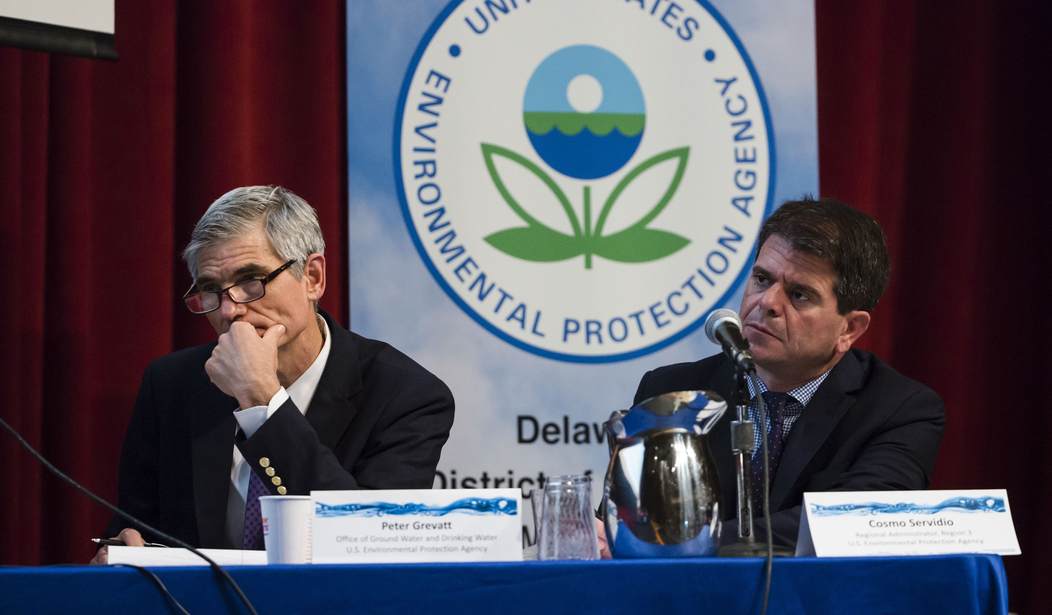An oft quoted saying from the timeless Poor Richard’s Almanack quips that “in this world nothing can be said to be certain, except death and taxes.” Perhaps a modern-day revision should be made to include the continued growth of the federal regulatory state as well.
In the Competitive Enterprise Institute’s recently released Ten Thousand Commandments 2022, author Clyde Wayne Crews calculates the annual cost of the Federal Regulatory State at $1.927 trillion, or 8 percent of American gross domestic product (GDP). The staggering size, scope, and cost of federal regulations shows how significantly unelected bureaucrats can affect the bottom lines of American consumers, businesses, and the U.S. economy at large. It also underscores the need for more review, transparency, and accountability for new and existing federal regulations.
Unfortunately, it appears that the Biden Administration and officials at the Environmental Protection Agency (EPA) are acting contrary to this spirit of reform and may be about to enact one of the most sweeping regulations to date. The EPA has announced that it intends to designate a class of chemicals known as polyfluoroalkyl substances, or PFAS, as hazardous materials under CERCLA (the Comprehensive Environmental Response, Compensation, and Liability Act, commonly known as Superfund). There are several problems with this proposed action.
For starters, the science on which this decision will be made is dubious at best. There are simply too many questions that remain unanswered. Despite years of research and work, the EPA admits that they do not even know how to detect or measure PFAS in our air, water, soil, and fish and wildlife. They do not even know the extent to which people are exposed to PFAS or how harmful these chemicals are to people and the environment. And the EPA does not know how to manage and dispose of PFAS.
Recommended
Even worse, federal agencies cannot even agree on how many PFAS chemicals exist. The Food and Drug Administration (FDA) says there are 5,000 different types of PFAS. Yet the EPA says there are “approximately 600.” You cannot make the decision to regulate PFAS more strictly without these basic questions answered.
PFAS are also ubiquitous. These chemical compounds have been widely used for decades and today are in many everyday products that help us through our daily lives. They are used in various ways in automobiles, in aerospace applications (both military and civilian), they are in electronics, chemical/industrial processes, and medical/first responder applications. PFAS are used in adhesives, sealants and caulks, paints and coatings, outdoor technical textile applications, semiconductor production, personal care products, and much more including solar panels and wind turbines.
The regulatory burden to everyday citizens and business of such a radical action as designating all PFAS substances as hazardous materials would be massive. The many consumer products that use PFAS would suffer significant price increases if the chemical is designated as hazardous material under the Federal rule. Disposal fees could also skyrocket by as much as 5,300 percent as most waste would now be considered hazardous, given how ubiquitous PFAS is in common consumer goods. Water utilities would also suffer under onerous and likely untenable water safety standards that would be as much as 25,000 times more restrictive than World Health Organization (WHO) guidelines. These costs would have to be passed along to consumers, greatly increasing the financial burden for average Americans.
Last year, when the U.S. Congress was considering the "PFAS Action Act of 2021", Congresswoman Cathy McMorris Rodgers (R-WA) called the PFAS Action Act “overwhelming, heavy handed and unscientific,” as well as an “aggressive expansion of federal power.” Representative Tim Walberg (R-MI) said while “sincerely well-intended,” the bill would “hamstring our small businesses.”
Ironically, the White House has even admitted how detrimental banning the use of PFAS products would be. In July, the OMB expressed their concerns about a provision (Sec. 342) of the National Defense Authorization Act (NDAA) which would “prohibit DoD from procuring a wide range of items that may contain PFAS.” However, the EPA continues to push forward with the proposed ban.
Media reports have indicated that a proposed rule has cleared review by the Office of Management and Budget (OMB) and that the EPA plans to formally issue the rule by the end of 2022, and then finalize it by the end of 2023. Ultimately though, the White House should not green light the Environmental Protection Agency’s efforts to fast track a new expansive PFAS rule with so many unanswered questions on the science, the policy, and the costs. It should also use this as an opportunity to reform its environmental regulatory agenda more broadly.
Douglas Domenech is the former Virginia Secretary of Natural Resources where he oversaw the Department of Environmental Quality, and a former Assistant Secretary at the Department of the Interior
























Join the conversation as a VIP Member